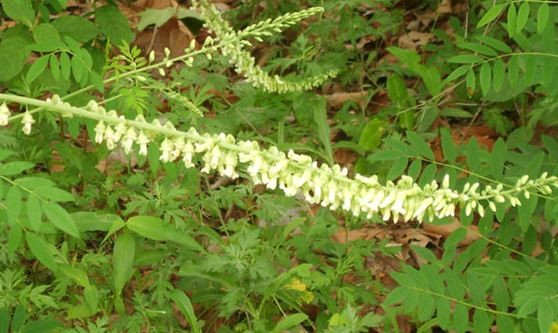A complex mix of plant compounds derived from Traditional Chinese Medicine, or the ancient clinical practice in China, apparently works to kill some types of cancer cells.
One of these compounds called "Compound kushen injection" (CKI) is approved for use in China to treat various cancer tumors, usually as an adjunct to western chemotherapy. How CKI works, however, isn't known.
This study published in the journal Oncotarget is one of the first to characterize the molecular action of a Traditional Chinese Medicine such as CKI rather than breaking it down to its constituent parts.
This is also one of the first studies to show the molecular mode of action of a complex mixture of plant-based compounds by applying what's known as a systems biology approach. In this case, what researchers studied were the extracts from the roots of two medicinal herbs: kushen and baituling.
This is a way of analyzing complex biological systems that attempts to take into account all measurable aspects of the system rather than focusing on a single variable.
Researchers used high-throughput next generation sequencing technologies to identify genes and biological pathways targeted by CKI when applied to breast cancer cells grown in the laboratory.
"We showed that the patterns of gene expression triggered by CKI affect the same pathways as western chemotherapy but by acting on different genes in the same pathways," said Prof. David Adelson, Director of the Zhendong Australia China Center for the Molecular Basis of Traditional Chinese Medicine.
"These genes regulate the cell cycle of division and death, and it seems that CKI alters the way the cell cycle is regulated to push cancer cells down the cell death pathway, therefore killing the cells."
Prof. Adelson said this technique could be used to analyze the molecular mechanisms of other Traditional Chinese Medicines, potentially opening their way for use in western medicine.
He noted that most Traditional Chinese Medicine are based on hundreds or thousands of years of experience with their use in China. There is often plenty of evidence these medicines have a therapeutic benefit, but there isn't the understanding of how or why.
"If we broke down and tested the components of many Traditional Chinese Medicines, we would find that individual compounds don't have much activity on their own. It's the combination of compounds which can be effective, and potentially means few side-effects as well," he pointed out.
The Zhendong Australia China center was established at the University of Adelaide in 2012 in a collaboration with the China-based Shanxi College of Traditional Chinese Medicine and Zhendong Pharmaceutical Company.
The center was established with a donation by the Zhendong Pharmaceutical Company, with the aim of understanding how Traditional Chinese Medicine works, and the long-term aim of possible integration into western medicine.



























